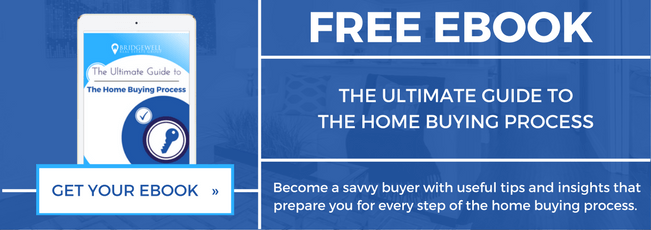Home Inspection FAQs
Frequently Asked Questions About Home Inspections

What is the purpose of a home inspection?
The purpose of the home inspection is to identify any major problems with the house and give you a better idea of what the process (and cost) will be to remediate these issues. The inspector will anticipate upcoming expenses in the next 2,5, or 10 years and onwards which will be required to maintain the general safety and health of the home. In all my years in real estate, I’ve never had an inspection with 0 issues come up – this just isn’t realistic. You’re probably buying a home that’s at the very least 10 years old (more like 50) and your new home is not going to be in perfect condition. With that being said, the inspector is a great tool to make sure you know how to maintain your home and what to anticipate so that you can save accordingly.
How long does a home inspection typically take?
In our experience, it is best to allocate about 2-3 hours for a home inspection. The inspector will go through the house room by room and look for major and minor issues, as well as check the exterior. A good inspector will also check the attic and get on to the roof if they can, so as a seller make sure to have these spaces available for them to explore. If the buyers are in attendance, typically the inspection takes longer as they will have questions and the inspector will need to take time to explain and show any issues the home might have.
Is it OK to perform the inspection myself?
Unless you already are a home inspector, inspecting your new purchase on your own is not recommended. The inspector is professionally trained to look for things that the average person would miss, and has the experience and education to make sure that your new investment is a sound and safe purchase. As most things in life, you get what you pay for. In BC home inspectors are actually self-regulated, so pretty much anyone can call themselves an inspector. Thus, quality ranges, and you might find a home inspector for dirt cheap that was an ex-handyman, or a more expensive graduated engineer with thermal imaging. When you’re dealing with what is probably the biggest investment you’ll make in your lifetime, choosing a good home inspector (despite the cost) will be worth it.
How much does a home inspection usually cost?
The home inspection is typically covered at the cost of the buyer, the seller rarely pays this expense, so be prepared to have this money ready to go within the week of an accepted offer. Prices vary depending on the size of the home, lot size, and whether it is a condo/townhome/detached home but for a smaller condo/townhome you should estimate about $300-400 and a detached home anywhere between $400-600 as there is a larger fluctuation in size.
What happens if the deal falls apart? Do I get my money back for the inspection?
While some inspectors do have guarantees or special deals in this case, the answer is usually no – you do not get your money back. I know this seems like kind of a bummer, but if you think about it, the bigger bummer would have been that you paid a million dollars for a home not having done an inspection and finding out that there’s some big dollar payments about to come up due to major issues.
Is it normal for the inspector to find a big list of things that need to be done?
Yes. It is the inspector’s job to find things that require maintenance throughout the house. If your home inspector doesn’t find anything, then they aren’t doing their job. One of the biggest benefits of the home inspection list is that it prepares you for the home and regular maintenance that comes with being a home owner. They’ll provide you a list of what needs to be fixed immediately (if any), and down the road in 2 years, 5 years, etc. or how you see fit. The home inspector will provide you with a full report that includes a summary, and then breaks down each aspect of the home one by one with a rating.
What happens if I uncover something major in the home inspection?
There have been (many) cases where the home inspector finds a big bill fix that needs to be done immediately. Maybe a roof needs to be replaced or the plumbing is in serious need of an update. When you’re dealing with major bills uncovered you have a few options:
- Negotiate with the sellers and have them bring the price down to factor in the update.
- Revisit your budget – see if you can work it in and afford it. Typically major updates like a roof the plumbing are going to cost you close to $20,000 or more depending on the state and severity.
- Walk away from the deal and move on to the next home.
It is very important to understand that an inspection is not there to negotiate every nickle and dime and sweat about the small stuff. However, if there is a major update or fix to be made that directly affects your safety or health and is going to cost a big chunk of change, then the inspection is there to start a discussion.
Can I negotiate the price if the home inspector finds something wrong with the home?
When you begin a re-negotiation, the seller still has the right to say no. For example, let’s say the roof has a leak and it absolutely needs to be re-roofed. You go to the seller and say that you need to reduce the price by $20,000 as this is a necessary expense. The seller says no. Well, now you have to revisit your budget and decide whether you still want the home, or whether you’re going to walk away. Thus, whenever you’re adding terms or changing the price, the seller still needs to agree.
Can I still look for homes during the subject removal process?
The purpose of subject removal is to remove subjects, and this should be your sole focus during the time. Legally, if you do not remove subjects, you have to provide a reason as to why you did not remove that is directly related to the subjects initially written in the contract. “Found another home” doesn’t relate in any way to subject removal, meaning you could run in to some legal trouble if the sellers discover the real reason for you backing out and call you out on it. At the end of the day, if you’re still looking for other homes then you probably don’t like your accepted offer home enough to really live in it. Looking around is not really helping your scenario so we recommend that you put your time where it’s most needed: subject removal.
—
If you’re looking for a home inspector we have a list of our top picks that our clients like and we respect as professionals. Do you have any other questions about the subject removal process or home inspections in particular? If there’s anything we can help you with just give us a call or text: 604-319-0200 or email [email protected]



